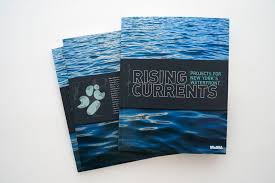What a rising current-account surplus means for the euro area

GREECE’S third bail-out programme came to an end on August 20th. A look at the causes of the country’s near-decade of crisis illustrates how external imbalances can reflect underlying troubles. Gaps in public finances, as well as investments in property, were financed by borrowing from Germany and other northern European countries. Wages and costs were pushed up, making exports less competitive—within the euro zone, there can be no currency devaluation—and further widening Greece’s current-account deficit. When foreign lending seized up, the government needed bailing out and the banks crumbled. Portugal (chiefly because of its public finances), Spain and Ireland (blame private-sector housing bubbles) have similar tales to tell.
Get our daily newsletter
Upgrade your inbox and get our Daily Dispatch and Editor’s Picks.
As those four countries have stabilised or recovered, they have wholly or partly reversed their current-account deficits (see chart). But if the periphery has adjusted, the same is not true of the euro area’s creditor countries. Surpluses in Germany and the Netherlands have grown. As a consequence, the euro zone in total has a substantial current-account surplus. In the year to June it was 3.6% of GDP (the same as the record for a calendar year, set in 2016). Growth is likely to have been hurt.
In 2017, according to the IMF’s External Sector Report, published last month, the euro area had the world’s biggest absolute current-account surplus, $ 442bn. Germany has the largest of any single country. China’s once-vast surplus has narrowed: in the first half of this year, indeed, China reported a deficit. America’s deficit remains the world’s biggest, $ 466bn last year. Corporate-tax cuts, interest-rate rises and the associated dollar appreciation could widen it further.
Current-account imbalances are not always a cause for concern. As a matter of arithmetic, they measure the gap between domestic savings and investment. The euro area is an economy with an ageing population: it should save more than it invests. As a result, it should have a current-account surplus. America’s deficit partly reflects the more attractive investment opportunities available there than elsewhere in the world. Imbalances become more worrying, however, if they are larger than economic fundamentals might suggest or financed by short-term inflows.
The crises in the periphery of the euro zone were reflected in deficits caused by a surfeit of unproductive spending. But excess surpluses, too, can have drawbacks. The IMF reckons that the euro area’s aggregate current-account surplus is now stronger than would be justified by structural factors and the business cycle alone. Growth in the zone relies too much on that of its largest trading partners, including America; worthy investment projects at home—in German infrastructure, say—go unfulfilled.
Surpluses also have political consequences outside the bloc. President Donald Trump sees Europe as a “foe” because of its bilateral trade surplus with America. He has slapped tariffs on European steel and aluminium, and threatened them on cars; the European Union has retaliated. The two sides are negotiating, but trade tensions are likely to keep simmering.
Internal strife
The current-account deficits in the euro zone’s crisis countries were of the worrying kind. That they have shrunk or reversed is comforting. This has happened largely through increases in exports, suggesting that competitiveness has improved. (Much of Ireland’s huge surplus reflects multinationals domiciling their intellectual property in the country to take advantage of its low corporate taxes, boosting its exports.) In Greece, where eight years of crisis and austerity have squeezed consumption and investment, imports have borne a greater part of the adjustment. They are more than 25% lower than in 2007.
The adjustment was particularly painful because, as members of a single-currency bloc with low inflation, crisis-hit countries had to devalue their real exchange rates by cutting wages and domestic demand and employment. And the zone’s growing aggregate surplus points to another exacerbating factor: Germany’s excess of saving over investment kept rising, as it increased lending and exports to countries outside the zone.
If instead Germany had expanded domestic demand, others’ relative price adjustments could have been less painful. A paper by Olivier Blanchard, Christopher Erceg and Jesper Linde, published in 2015, finds that higher German inflation could make other countries’ goods and services relatively cheap, making it easier for crisis countries to adjust. The effect is particularly strong when interest rates have to remain low to stimulate the economy. Some German economists, notably at the Bundesbank, have long argued that this is irrelevant: it is up to profligate southerners, not prudent Germans, to adjust; and fiscal expansion will not boost demand for euro-area imports directly.
Still, this uneven adjustment in the euro area could explain why both demand and inflation, once energy and food prices are excluded, have been stubbornly low. Since crisis countries still need to reduce their stocks of external liabilities (ie, the accumulation of past current-account deficits) and public-sector debt, that looks set to continue.
John Maynard Keynes recognised the risk of such asymmetry in the 1940s: “The process of adjustment is compulsory for the debtor and voluntary for the creditor. If the creditor does not choose to make, or allow, his share of the adjustment, he suffers no inconvenience.” Keynes wanted to tax countries that hoarded trade surpluses. In 2011 the European Commission set up a “macroeconomic-imbalance procedure” to tackle the problem. But the process appears to place less weight on surpluses than on deficits and lacks the means to enforce its recommendations.
Another way of dealing with imbalances would be to encourage greater risk-sharing through fiscal and (deeper) banking union. The euro zone would become more like America, where inter-state imbalances are not even recorded. But that too seems politically infeasible. The euro area’s long slog will carry on, and debtor countries will bear the burden.
This article appeared in the Finance and economics section of the print edition under the headline “A question of balance”
